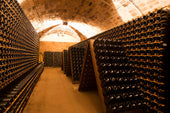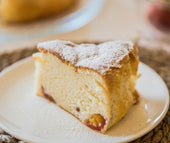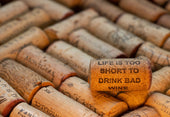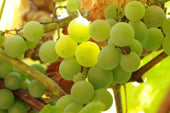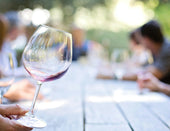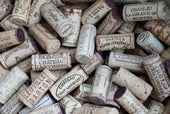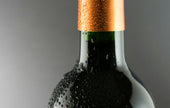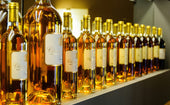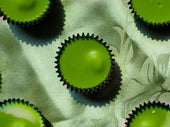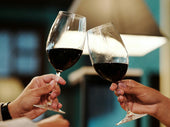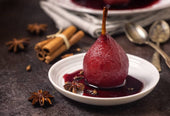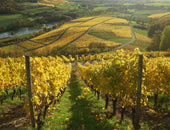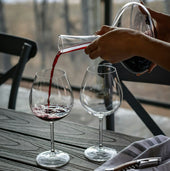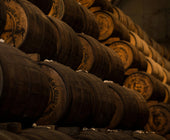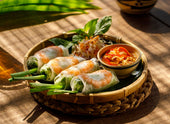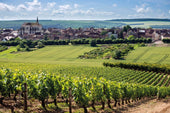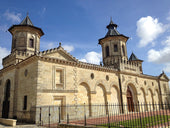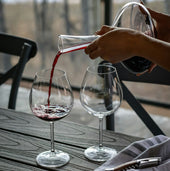
Wines of Montpellier: Chateau de l'Engarran

Check out our Virtual Tasting with the wines of Montpellier and our latest imports from France. Without the luxury of traveling, let's reminisce some of our current discoveries from a historical wine region from France.
Imagine the Southern Coast of France shaped like a crescent with Provence to the east and Rousillon to the South. The city of Montpellier is located 6 miles from the coast, is about 2 hours from Marseille, 1.5 hour from Perpignan and a 4-hour train ride from Paris. It is famous for its University, one of the oldest in the world, founded in 1160. Nostradamus, the French astrologer, physician studied there . The first mention of Montpellier was in the Early Middle Ages and around the year 1200, it became a prominent trading center due to its proximity to the rest of the Mediterranean world.
Just outside of Montpellier is the thriving wine appellation under the Languedoc AOC umbrella. Gres de Montpellier is a sub-appellation of Languedoc AOC, a cru with superior terrior and quality control. History of viticultural can be traced to 5th century BC by the Greeks, while the Romans utilized the vineyards for trading wine and Cistercian monks continued the viticulture work which lasted to modern day.
Gres de Montpellier appellation stretches east and west of Montpellier, bordered by Pic Saint-Loup to the north and protected by the Black Mountains. This climate is Mediterranean with long hot summers, mild winters with mistral wind s to cool down the humidity and heat. Only 46 communes out of the 531 which make up the Languedoc AOC have the right to produce Gres de Montpellier wines. Hence the crested emblem on the bottle to guarantee its authenticity and origin. Grenache must represent 70% of the plantings and at least two principle grape varieties are required to make up the blend. Grapes must be harvested at maturity and the maximum yield authorized is 45 hectoliters per hectare. In addition, the vines must be pruned via goblet (bush) or cordon de royat (trunk with two horizontal arms). Wines can be released once it has matured for a minimum of 12 months.
Between 17th and 19th century, beautiful residences were built around Montpellier by wealthy merchants. One of the few remaining residence is Chateau de l’Engarran, located on a hill which also happens to be in the Gres de Montpellier appellation. The architectural details which decorate the facade of the buildings are made from white Pignan stone. Chateau de l’Engarran sits on 148 acres of a park like estate. 100 acres of it is dedicated to Gres de Montpellier and Saint Georges d'Orques appellations. The original founder Henri d’Engarran bought 17 acres in 1632 and his last wishes was for his name to be attached to the Chateau. In 1924 Chateau de l’Engarran was classified as a historical monument by the local government. Remarkably, for the last three generations, it is the women of the Grill family who have been handling the estate. Today, two sisters, Diane Losfelt and Constance Rérolle continues the tradition.
The major soil types for Gres de Montpellier is made up of gravel and round pebbles similar to Chateauneuf-du-Pape and gravels of Bordeaux. The soils of Saint Georges d’Orques is red soil with pink and white quartz and round pebbles. The soils here are rich with iron oxides and good drainage. The Chateau is certified Terra Vitis which combines both organic and sustainable practices.
Since Gres de Montpellier only allows red wines, the Chateau turns to their neighboring appellation, Saint Georges d’Orques for the production of rosés. Saint Georges d’Orques is a fortified city that is minutes away from Montpellier. The soil here is red soil with limestone and round pebbles. Wines from Saint Georges d’Orques have been recognized since the Middle Ages. It’s reputation for producing quality wines with freshness due to the iron oxide rich soils traveled as far as Russia, Scandinavia and England. It was said that Thomas Jefferson discovered them in 1787 and documented his discovery in his travel journal. In fact, Jefferson even eliminated import tax for these wines as part of his campaign to introduce good wines to the new world. What a concept. Something we need to be adopting these days. Let’s hope our future presidents will enjoy wine as much as Thomas Jefferson.
Discover the wines of Montpellier with Chateau de l'Engarran collections.


